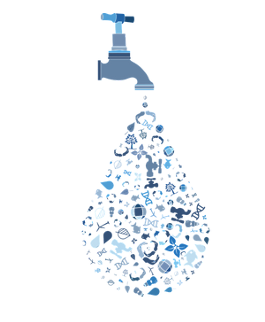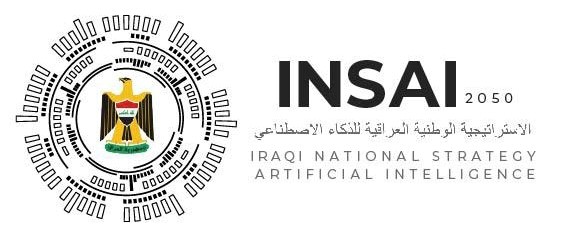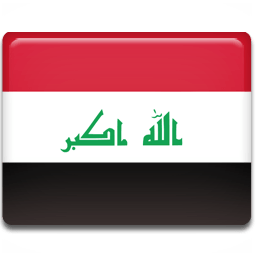Smart Water Management Project
- the background of the project
- components of the project
- Executive steps required for project approval
- recommendations

First: the background of the project
In line with government directives to enhance water and food security using modern technologies, and in coordination with the Ministry of Planning, the final report of the Smart Water Management Project was submitted, which was worked on by the relevant technical teams within the framework of the Supreme Committee for Artificial Intelligence. The project aims to introduce applications of artificial intelligence and digital transformation into water resources management in Iraq, which is one of the strategic pillars for achieving optimal water use, reducing waste, and enhancing operational efficiency in the face of climate change and resource scarcity.
Second: components of the project
The project consists of three main components:
1. Studying the applications of artificial intelligence in surface and groundwater management.
2 Study the establishment of a comprehensive national database of water resources.
3. Study the application of smart irrigation technologies to achieve national food security.
Third: Executive steps required for project approval
In order to include the project in the National Water Strategic Plan, it is necessary to present it to a council
Ministers to officially approve it, after completing the following steps:
1. Prepare a detailed business plan that includes:
Interim and final implementation objectives.
Interference with other national plans Agriculture, Environment, Energy
Implementation and monitoring mechanisms.
2. Analyze available databases and determine technical requirements
Review of geographic information systems and available hydrological data.
Identify the technical gaps required to develop the national database.
3. Preparing a detailed report on project requirements, including:
A. Field evaluation:
. Visit suggested sites.
. Choose a realistic case study that represents the implementation scenario.
b. Basic technical requirements:
Evaluation of control and control efficiency in hydraulic installations.
. Development of hydraulic and environmental monitoring systems.
. Developing traditional operating systems towards smart operation
. Use of decision-making systems supported by artificial intelligence.
Integrating renewable energy technologies (solar / wind
Design a virtual experimental simulation model for the selected case.
C. Digital architecture
Determine national water database requirements in coordination with the data team
Supporting data integration between stakeholders (agriculture, environment, resources, municipalities
Dr. Cost estimation
Provide speculative costs for the executive stages.
Determine local or international partnership financing requirements
. Economic feasibility analysis return on investment
Fourth: recommendations
Opening the General Secretariat of the Council of Ministers for the purpose of including the project on the Council's agenda for approval. . Forming a joint team between the Ministry of Planning, Water Resources, Environment and Agriculture to unify data and insights. . Allocate a budget within the 2026 National Investment Program to finance the project prototype. . Implement a pilot project for the selected case study within one year that includes all technical and digital requirements. Opening the door to cooperation with international institutions (such as UNDP FAO, the World Bank in implementing and evaluating the project.

